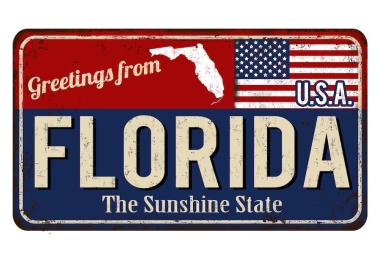It is 10 am on a weekday morning inside the nouveau-posh Hotel Monaco in the historic district of Philadelphia, capital of Pennsylvania.
Several floors above Chestnut Street, Charles Smith, the biggest independent wine producer in Washington and the third-largest in the state, sits on a stuffed sofa in his well-ordered room and offers breakfast to a visitor. Afterwards, he’ll set out on another day of his spring cross-country road trip – “45 days, 37 states, three Canadian provinces,” Smith recites – to introduce new wine releases of his eight wine brands to distributors, wine shop managers and restaurant sommeliers. Right now, he’s in Pennsylvania, to see the state-owned monopoly that buys and sells wines in this cradle of American liberty. And he’s a lot tamer than the visitor had been led to imagine.
Charles Smith still has the famous mane of electro-frizzy hair that’s reminiscent of the afros of the 1960s, but now it’s turning quite grey, and when the waiter arrives bearing cold, stale English muffins, he declines to roar in complaint as his reputation might have predicted. Chalk this morning’s somewhat kittenish behaviour up to learning how to roll with the ups-and-downs of life on the road. It’s a life which Smith, now 54, has lived ever since he first shepherded rock bands to venues across Europe during the 1990s, which must now seem like another lifetime to the California native.
Truth be known, Smith – no relation to the Charles Smith of Napa Valley’s Smith-Madrone Vineyards & Winery – has two competing public personalities. One is the wild man who still parties hard, leaving stories of bad behaviour swirling behind him like debris in a hurricane. The other is that of a winemaker and smart businessman who, in a little over a decade, built his company from scratch to become one of the best-known wine producers in North America. These days, the nose-to-the-grindstone Charles Smith is the dominant persona. Or, as he puts it in a no-excuses manner, “If I’m all f**ked up from the night before, tough sh*t.” The lion gives a sheepish grin over the top of his porcelain cup.
“You’ve got to go out and earn it,” Smith, clad in his uniform of T-shirt and jeans, says philosophically about his demanding schedule. “I’ve been successful by being on the road, making impressions and friendships.” And his hard work is not limited to travelling. “I’m probably the most prolific winemaker in the US,” he says with no tenor of boastfulness. “I don’t think anyone produces more single-vineyard wines with one winemaker than I do.”
The winemaker
Charles Smith’s wine empire is constantly evolving. He annually produces about 750,000 cases, with sales in all 50 states of the US, along with another 24 countries. His premier K Vintners brand wines are regularly scored in the high 90s by Robert Parker and other critics. His other brands are Charles Smith Wines, Sixto, Vino, Charles & Charles, Wines of Substance, Secco Italian Bubbles and Casa Smith, whose recent launch now has him on the road. With the exception of the Charles & Charles joint venture with French-born importer/entrepreneur Charles Bieler, Smith is his own one-man band with no investors.
His winemaking style for reds, Smith says, has a strong commonality – long macerations of 30 days or more on the skins with no racking after malolactic fermentation is finished. “They go to the barrel ‘dirty,’ on their gross lees,” he says. He eschews battonage for his whites, and they are fined and filtered for stability.
Smith paints himself as a self-taught winemaker with no mentors, except perhaps “a guy from Amador County”, a home winemaker he once worked with. “He told me that anyone could make wine,” Smith recalls, “and that there was no reason to be afraid of it.”
Yet, for the first half of his life, Smith had trouble gaining traction. Following his parents’ divorce, he grew up in the foothills of California’s Sierra Nevada Mountains, alternately living with each parent. At 18, he got a restaurant job in Lake Tahoe and gradually worked his way through various establishments, including a stint in Napa Valley, from junior waiter to sommelier at the Ritz-Carlton in Rancho Mirage.
In 1990, the 28-year-old Smith followed a girlfriend to Denmark where he became involved in the music scene, eventually managing tours for well-known European groups such as The Raveonettes, Psyched Up Janis and The Cardigans. “I was working in a bar and was in charge of booking live music,” Smith says of his deep dive into music. “A few months later, one group’s manager quit, and they asked me to take over.”
In 1999, he moved back to the US and opened a small wine shop in Seattle. Soon after, on a road trip to eastern Washington, he met Frenchman Christophe Baron of Cayuse Winery, who sold him some 1999 vintage Syrah grapes that gave Smith his start in making wines. In 2001, a Walla Walla banker advanced Smith a loan based on the quality of his first wines, using them as collateral. His first release was 330 cases of what was to become his elite label, K Vintners. Smith was 39 at the time.
Perhaps no one knows Smith better or has a longer relationship with him than Rikke Korff, now an independent designer who was reviving Levi’s jeans business when she andSmith met in Europe. Korff designed some record labels for Smith’s bands, so it seemed only natural that Smith turn to her to interpret his ideas for minimalist wine labels when he became a producer.
“When Charles and I get together, it’s a constant brainstorming,” says Korff, who lives and works in California. “He’s very receptive, and he knows good ideas,” she continues. “When he gets testy, it usually means you can do better. He’s relentless, but he makes good choices.”
The name for Smith’s best-selling wine, Kung Fu Girl Riesling in his Charles Smith line, came from an idea Korff had for a Kung Fu Girl clothing line after taking a martial arts class. “When Charles thought about making his Riesling, he came back to me and asked me if I minded if he used the name,” she says, adding, “he’s like a brother.”
What does Korff think makes Smith tick?
“Charles has a lot of pride,” she says. “I think success drives him, having a sense of accomplishment. He was beaten down pretty badly early in life. He lived in his car at one time.” And she points to the fact that Smith only began his successful run as a winemaker “a couple of years before his fortieth birthday”.
Vision of success
Now, over a disappointing breakfast in Philadelphia, Smith says that after 15 years of success, he thinks he has figured out what’s important. One is that he likes working alone and would prefer not to have partnerships, either with investors or like-minded entrepreneurs.
“I like being a sole proprietor with no investors,” Smith says, recognising he got his start by working closely with both a local banker and with Cayuse’s Baron, although he and Baron had an undisclosed falling out years back and are now ex-buddies. And the 2010 Charles & Charles partnership with Bieler also came relatively early in his wine-producing career. “I don’t want my future to be determined by other people,” Smith says simply.
This independence has allowed Smith to make quick decisions and to act on them with equal speed. Sounding a bit like a devotee of Malcolm Gladwell, who holds that people often instinctively make the correct decision in a “blink” rather than conducting time-draining and expensive research, Smith says, “For me, it’s important that something seems the right thing to do at the time.” Further, “When I make a decision, I take action on it immediately. I’m the typical little ship that can maneuver quicker than an aircraft carrier.”
For example, in 2004, following a bad harvest, he decided to start a cash-flow brand called House Wines: “I was amazed that no one had the name,” he says. “It pretty much formed in my head all at once.”
But he was also quick to sell the brand for a substantial profit when it no longer met a strategic need. In addition to being decisive, Smith believes he has succeeded by focusing on what the market needs and what he can offer, not in emulating what has worked – or not – for others. “I kind of zip past everyone else,” he says. “I don’t care what other people are doing.”
But if Smith’s ship is relatively small, he is still its captain who now has to hire and lead a growing crew of employees at his Walla Walla vineyards, Seattle winery and tasting room, and sales team. “I want people who are stealthy, smart, purposeful. I want employees who are additions to me, not people like me,” he says. “I encourage them to want to be successful,” on their own as well as with his business.
That said, employees report Smith is a tough boss, constantly demanding they do better. “I tell them the only thing that matters is that what we do it right.”
At this point in their careers, most producers are tempted to go in one of two directions – either expanding into untried markets or else taking the money being waved by big corporations and running with it.
As for the first path, Smith explains that while he’s interested in making Malbec, he has no plans to follow other West Coast winemakers to Argentina to do so. “I appreciate having the ‘off-season,’” Smith laughs, “although it’s really not an off-season for me. I’m on the road selling wine.”
He also rejects the idea that the number of his Washington-based lines of wine – now at eight and counting – is brand proliferation run haywire. “I think of them as a family, all related,” he says. “K Wines are more basic winemaking, Charles Smith is more modernist in style, Wines of Substance are Bordeaux-style wines,” continuing to explain each line.
In one major departure, last year Smith opened a new, customer-enticing winery and tasting room in rainy, coastal Seattle, even though vineyards that are the source of his fruit and reputation remain 250 miles away on the arid eastern side of the Rockies in the Columbia River Valley. “Surprisingly,” he says, “it was the easiest harvest to work that I’ve ever had.”
And as far as the second path – “cashing out” by selling his brands to a wine conglomerate – Smith says it isn’t going to happen. “I’m 54 now, my girlfriend [he is recently divorced] is moving in, and I have a four-year-old daughter. I think working until I’m 94 sounds about right. I’ve been successful,” he adds, “but I’m just now getting good at it.”








